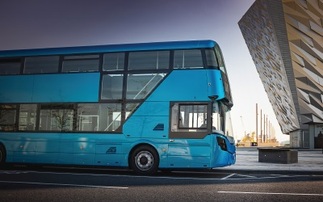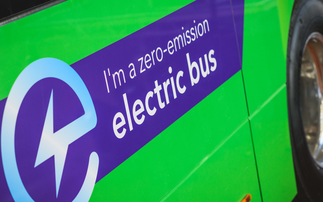AkzoNobel's Johan Widheden asks what the IPCC's latest report means for the transport sector
The world is changing at a rapid rate and so is the ability of our planet to withstand these changes. In fact, it has been estimated that we have already breached the safe operating space of humanity in...
To continue reading this article...
Join BusinessGreen
In just a few clicks you can start your free BusinessGreen Lite membership for 12 months, providing you access to:
- Three complimentary articles per month covering the latest real-time news, analysis, and opinion from Europe’s leading source of information on the Green economy and business
- Receive important and breaking news stories via our daily news alert
- Our weekly newsletter with the best of the week’s green business news and analysis







